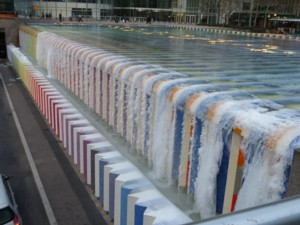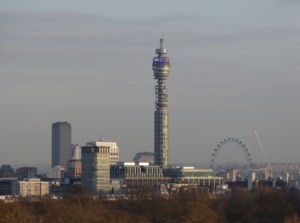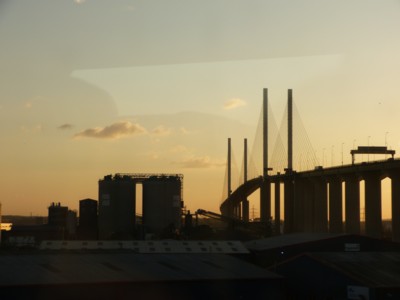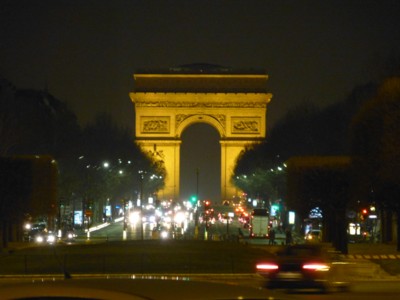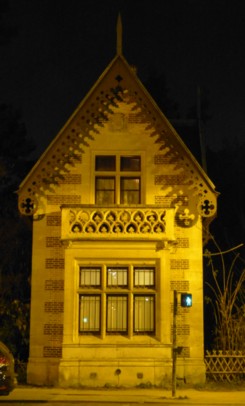We are developing the social individualist meta-context for the future. From the very serious to the extremely frivolous... lets see what is on the mind of the Samizdata people.
Samizdata, derived from Samizdat /n. - a system of clandestine publication of banned literature in the USSR [Russ.,= self-publishing house]
|
The French satirical magazine Charlie Hebdo published cartoons mocking the Islamic prophet Mohammed. The magazine’s website is at CharlieHebdo.fr. It was very slow to load when I tried it, and although I did eventually find the front page I could not see the actual caricatures.
My opinion has not changed since I contributed a “Mohammed emoticon” (((:~(> to Everybody Draw Mohammed Day. I said then and I say now,
I take no pleasure from violating other people’s taboos. It is not polite and I wish to be polite. In ordinary circumstances if I want to do something that will annoy others I am willing to put up with moderate inconvenience in order to do it out of their sight. These are not ordinary circumstances. People are being threatened, harassed and sometimes murdered by fanatical Muslims for exercising free speech. The media and academia, fearless defenders of free speech so long as there was nothing to fear, have by and large caved in. So maybe it is time for ordinary people to step up. Lots of them. Spread the risk.
Obviously Charlie Hebdo itself stands proud where most other newspapers and magazines in the Western world cringe. If other journals had been as brave no one would have to be that brave.
“So the Games have managed to achieve what even Hitler failed to accomplish with the Blitz: the total evacuation of London’s working population. Well, not quite total. There are plenty of poor devils who are still trying to scratch a living in the wasteland of empty restaurants, shops and streets. The trouble is that the the usual customers – the great mass of people who normally commute into central London every day – have been terrorised into staying away by a hugely successful Transport for London promotional campaign.”
Janet Daley, in the Daily Telegraph.
She writes about how so many Londoners have fled the country. I am one of them. More than 7 months ago, dreading what I feared might be the impact of the Games, I booked two weeks’ holiday in southwestern France, staying in the lovely small town of Marseillan, in the Languedoc region (nearest big city is Montpellier). I am actually doing some work down here although I have handed most responsibility to a colleague. My wife and I are having a great time – the weather is glorious without being raspingly hot; the food is amazing and good value; the locals are very pleasant; and last but not least, there is a most gratifying lack of Brits to remind me of home. I do check in on the internet occasionally, but although this might strike some as unsporting, I just haven’t got the “Olympic bug” at all. Yes, I thought parts of the opening ceremony were fun (glad to see Brunel honoured as the great Victorian civil engineer he was), and thought the James Bond routine was hilarious, and was not even all that annoyed about the National Health Service propaganda. (I thought the bit about the Industrial Revolution was actually not bad – all that celebration of carbon emissions and molten steel! But I am just not all that enthused. The greatest sporting festival this year has come and gone (the European football championships), and the Tour de France was also a gloriously unexpected highlight of the year. And as Brian says, there was also the cricket. Always the cricket.
By the way, Bradley Wiggins, winner of the Tour, cycled past where I am now staying, and the locals worship the guy. He has become a bit of a cult in France. They like his character, guts and behaviour.
My blogging output is going to be light for the next 10 days. You see, they sell cheap but excellent red wine here by the litre.
French intellectuals are, on the whole, a rather annoying group of people, notorious for confusing obscurity and verbosity with profundity, and for whom the regular use of words ending in “-isation” is a substitute for rather than an aid to clear thinking.
Nevertheless, when French intellectuals change their minds about something of significance, it signifies. Whether this is because they actually influence any persons other than other French people, and mostly only each other, or whether it is that they influence nobody but do have a highly developed sense of which way the intellectual winds of the world are blowing and when they are shifting in direction, and hence how to sale with them, I do not know. But, one way or another, these people do count for something.
So the fact that one of this tribe, Pascal Bruckner (a “celebrated French philosopher from the centre left”), has decided that environmentalism has now become a load of despotic hooey is, I believe, quite significant.
I remember when these people turned en masse against Soviet Communism, either because it had “betrayed” Communism (bad) or because it was Communism (bad), in the late nineteen seventies. That meant something then.
And this (“Scorning the propaganda of fear”) means something now.
There is a new law in France that every car must carry a breathalyser so that drivers can test themselves and see if they are fit to drive.
Call me a cynic if you like but I strongly suspect that certain law makers may well have significant pecuniary interests in…
… the country’s two companies that make these breathalyser sets 
Sometimes useful insights about the state of the world comes from sources very far removed from the dismal mainstream media. This was taken from Knight Frank estate agency promotional bumf stuck through my door yesterday under the title “What nationalities are buying in your area?”
Given what has happened with the presidential elections in France we will be seeing many more French buyers shortly. We have also seen a huge spike from people in France searching on our website for properties in London.
Yup. We may be fucked but we are less fucked than you.
I am presently in the Kingdom of Jordan. It’s a pleasant place. Developing quite rapidly. Friendly, welcoming people, although with a slight excessive tendency to charge foreigners more than they might charge locals for the same thing. That’s a sign of the stage of development the country presently occupies, however. Those higher prices are still cheap, by the standards most westerners are used to, and it is easy to get away with. Such are the joys of using an alphabet that westerners generally cannot read, too. (This sort of thing happens much more in Thailand than it does in Vietnam, for instance, as the Latin alphabet used by the Vietnamese makes it much harder to get away with. Despite the preponderance of alphabets used in India, it happens far less there, given that every establishment has an English language price list that is used by Indians far more than by westerners).
Amman is a city with quite a lot in common with somewhere like Bangkok, actually, although Bangkok is clearly more developed right now. A huge number of people have arrived in Amman from the countryside in recent decades, boosted by greater economic opportunities in the city than the desert as well as for political regions. Huge, relatively poor neighbourhoods have sprung up in East and South Amman. Crowded, sure. Desperate, not at all. In these neighbourhoods you find clusters of souks and markets and stores devoted to most imaginable products.
The new and rapidly growing middle classes are in West Amman. This is a mixture of highway flyovers, international restaurant and hotel chains (including many American restaurant chains not seen in Europe), shopping malls, and bad driving. It resembles Dubai in some ways, but is much less manic, much less the product of ruthless absolute monarchy and a viscous caste system (the Jordinian royal family being much more moderate) and contains many more pedestrians, even if the road infrastructure does not appear to have been invented with pedestrians in mind. There are various signs that money has entered Amman both from and via the UAE in various ways, but it doesn’t appear to be dominating the place. Plus, the weather is a good deal nicer, which helps a lot.
Go into the nicer shopping malls, and you find many of the expected international tenants that are generally to be found in middle class districts of rapidly developing cities with aspirational middle classes: Starbucks, Zara, etc. Anchoring each mall is a huge supermarket, selling vast amounts of food and non-food items at good prices – devoting roughly 50% of floor space to food and 50% to everything else, an outlet of the French chain Carrefour.
As I usually do in foreign countries like this, I devoted some time to wandering around the aisles of this supermarket. There is no section devoted to alcoholic drinks, this being an Arab country. Jordan is not an especially difficult place to find a beer. There are (fairly expensive due to high taxation) liquor stores throughout the country, mostly operated by members of the sizeable Christian minority, but drinking alcohol is something you separate from good wholesome activities like doing the regular shopping or having dinner in a public place, so there is no alcohol section and most restaurants do not serve alcoholic drinks. More entertaining is the section that would be devoted to things like ham, bacon, and salami in a European country. It is really amazing what you can do with turkey meat if you try, as anyone who has ever been served a halal English breakfast can vouch. And along with the Turkey salami there is the lamb salami beloved of Indian pizza aficionados. The regular meat section is full of lamb and beef, some of it imported from places like Brazil and Australia, and some of it sourced locally. The seafood section contains lots of fish that are described as coming from Dubai. An almost landlocked country is not going to be able to source most of its seafood locally (and, in the modern globalised world, who does, anyway?). The food section in general contains much catering to local tastes, and contains a very impressive mixture of local and imported.
Go into the non-food section and you find cheap TVs, computers, and other electrical appliances of all kinds. Cheap, but not too unsightly clothing in a mixture of western and local styles, kitchen utensils, tools and light kitchen, household and garden stuff. Toys. People familiar with the non-food section of a Carrefour or a Tesco anywhere else will be familiar with the contents here. A larger portion of this is imported, and needs to be less localised than the food, but where local sourcing and catering to local needs and taste is necessary, it is done.
Get a bus or taxi to the poorer neighbourhoods of Amman, and there are more downmarket malls in existence or under construction. These also have Carrefour outlets in them, possibly smaller ones. While Starbucks and Zara don’t necessarily travel all that far down from the upwardly mobile middle classes, supermarkets can. Everyone wants to buy good and inexpensive food, and cheap TVs and mobile phones appeal to all social classes as well. Carrefour have moved into the market by first providing cheap goods to relatively upmarket purchasing power by opening in malls that want them as tenants and with which signing contracts and negotiating bureaucracy is relatively easy, in so doing setting up supply chains and logistical systems in the country, and are now just starting to move out into the mass market.
Carrefour are, i think, the best in the world at general retail in middle income and developing countries. Their two most important competitors in this are Wal-Mart of the US and Tesco of the UK. Carrefour resembles Tesco more than it does Wal-Mart. Both Carrefour and Tesco began as food retailers, and as supply chain management became more and more important became better and better at it. Both were very good at negotiating the vagaries of their local planning laws and local labour laws, and expanded domestically to a huge extent as a consequence of this. Both added more and more non-food items as they opened larger and larger stores, to the extent that they became general retailers rather than simply food retailers. (The French use the word hypermarché or possibly the pseudo-Anglicism hypermarket to describe a large store that sells both food and non-food under the same roof. The English stick with supermarket regardless of how big it gets. As well as opening larger stores, they also opened smaller stores, becoming masters of everything from small convenience stores to giant mega markets (some of which do not even sell food). Using economies of scale to run both very small convenience stores and very large megamarkets at the same time was a relatively new thing, and both companies got this relatively early. Both took advantage of the new markets that opened up in Eastern Europe after 1989.
Wal-Mart on the other hand came from general non-food retail and added food later. → Continue reading: Urban development in Jordan and the power of French hypermarkets (but not French politicians)
On the Sunday between the two rounds of voting for the French presidential election, a curious thing happened in North-West London. Two Frenchmen rang the doorbell of my parents’ house and asked to speak to my mother (who is French). They wanted to know if she would be supporting Nicolas Sarkozy next Sunday, and if she had any doubts, would she like a leaflet outlining the President’s agenda for his second term. Naturally, not a word of English was spoken.
As it happens, I have never been canvassed in France for a French presidential, or any other kind of election. I was under the impression it was not done the same way as in the UK (privacy laws and so forth). Yet here were a couple of party activists, one white, the other of likely South-East Asian origin, wandering around London looking for swing voters. With about 400,000 votes cast by French citizens in the first round outside France (a turnout of nearly 40% of the registered overseas electorate), I can see why this get out the vote operation [GOTV] would exist. But even in London, where most of the UK’s half million French people live, it is not a case of calling door to door.
Before recent changes to French election law which create constituencies outside French territories that are represented in the National Assembly, presidential elections in the Fifth Republic (since 1962) were already a worldwide affair. Citizens in such French territories of Wallis and Futuna, Tahiti and Mayotte would cast votes at polling stations in Mata’utu, Papeete and Mamoudzou respectively. → Continue reading: National elections go global
“Listening to the candidates last night, it was clear that there is no pro-capitalist, pro-globalisation, low-tax, eurosceptic, outward looking party in France – there is no equivalent to the British Conservative party’s Thatcherite tendency. What passes for the centre-right in France is social-democratic and fanatically pro-EU; it is very different to the centre-right parties seen in English-speaking countries and many emerging markets. The “right-wing” eurosceptic candidate (who was crushed) is a protectionist who wants to tax the rich – and hates French workers who have moved to London. The only successful eurosceptics are the hard left who believe Brussels to be a capitalist plot and fascists who hate foreigners, the free market and multinationals.”
Allister Heath.
In the latest series of problems to hit the euro-zone, there are problems for the Dutch. Spain and previously, Italy, have been in the news for their economic woes. But France is the Big One. If this country – about the same in terms of wealth as the UK – votes for a socialist, with his promise to impose a 75% tax on those he deems rich, then the cafes, restaurants and schools in and around parts of London will ring even louder with the sounds of French accents than is the case already. The exodus of French people in recent years to these and other shores has been striking (they are not coming here for the weather). It is, if you like, a sort of French version of “Going Galt”, although I doubt any of the French political establishment has ever read Atlas Shrugged, nor cares.
I like France a lot and relish any chance to go there. In fact, during the two weeks of this year’s London Olympics, I am in the southwest of France, in a small town to the west of Montpelier. But I would not want, as a professional, to live in the country if it heads down a damagingly socialist path.
A couple of months ago now, I went ahead and bought that new camera that I had for quite a while been thinking about buying. The circumstance that provoked me into making a decision earlier than I otherwise would have done was a trip, early in February, to Paris. Yes, it was cold:
That’s a water feature, somewhat frozen when I photoed it, in La Défense, the big clump of modern architecture in the west of Paris.
The thing that clinched it for it, in favour of the Panasonic Lumix FZ150, was how reviewer after reviewer used phrases like “an all round winner” and “all round best”, as in best for the sort of camera that I wanted, when writing about it. Such talk suggested to me: excellence in what I knew I wanted (zoom, picture quality, good video recording) together with excellence in other areas that I would only learn about after I had started using the thing. So it is proving.
The other camera I was considering buying was the Canon SX40 HS. I can’t compare my new Lumix with that, and will presumably never know for sure if I made the exact right choice. But I can compare my new Lumix with all the previous cameras I have ever owned, and in particular with my most recent previous camera, a Canon S5 IS. And I can now tell you that I am a very happy snapper. Could I have chosen even better? Perhaps. Have I meanwhile chosen well? It certainly feels that way now.
The x24 zoom supplied by the new Lumix is wonderful, just as I expected it would be. The Canon SX40 HS has x35 zoom, but I reckoned that x24 would suffice for my purposes and so it is proving:
That’s a snap taken last week from Primrose Hill. On a typical London day, the limits of how far your camera can see with clarity are set not by its lens but by the clarity of the air, which is mostly set at: not very. So I am very happy with my new zoom superpower.
Other improvements on my old Canon were not quite so expected. → Continue reading: My new Panasonic Lumix FZ150
Of course, a number of governments, including the late, unlamented one of Tony Blair, were prepared to hold their noses and do business with the now very dead former dictator of Libya, but this story about an alleged £42 million campaign contribution to Nicolas Sarkzoy in 2007, if true, would surely be the end of the diminutive president of France.
Excerpt:
“The “terms” for handing over the money were agreed in a meeting between the two men in Libya two years before Mr Sarkozy’s election, documents published by a French investigative website suggest.A memo obtained by the Mediapart site and handed to a judge alleges that the meeting on Oct 6, 2005 resulted in “campaign financing” of “NS [Nicolas Sarkozy]” being “totally paid”. At the time Mr Sarkozy was France’s interior minister with well-documented ambitions to succeed Jacques Chirac. Political financing laws ban candidates from receiving cash payments above €7,500 (£6,300) but Mediapart claims that €50”‰million mentioned in the memo were laundered through bank accounts in Panama and Switzerland.”
Of course, given the range of poisonous collectivists running for the job of French president, it is very much the case of “none of the above” if I were a citizen of that country and thinking about voting in the upcoming French elections this year.
I am in Paris, staying with occasional Samizdatista Antoine Clarke.
Photoed out of the Eurostar on the way, the M25 bridge over the Thames:
When I got there and after I’d settled in, we went out for supper and then went walking for a while.
Arc de Triomphe:
Old internal customs duties office, which ceased functioning in 1943:
Antoine on Twitter this morning:
Ice cold in Paris … And those nice straight boulevards make wonderful wind tunnels.
Michael Jennings on Twitter:
Brian is having a good time then?
Antoine:
Likes this.
Bastard.
We were going to go out walking today, but instead will be indoors, either at Antoine’s home or in some museum.
I suppose it’ll add some spice to history exams though. Get the wrong answer and you not only fail: you get carted off to jail as well.
– The concluding sentences of a piece by Mick Hartley criticising a new French law which, once President Sarkozy signs it, will make it a criminal offence to deny that genocide was committed by Ottoman Turks against Armenians.
|
Who Are We? The Samizdata people are a bunch of sinister and heavily armed globalist illuminati who seek to infect the entire world with the values of personal liberty and several property. Amongst our many crimes is a sense of humour and the intermittent use of British spelling.
We are also a varied group made up of social individualists, classical liberals, whigs, libertarians, extropians, futurists, ‘Porcupines’, Karl Popper fetishists, recovering neo-conservatives, crazed Ayn Rand worshipers, over-caffeinated Virginia Postrel devotees, witty Frédéric Bastiat wannabes, cypherpunks, minarchists, kritarchists and wild-eyed anarcho-capitalists from Britain, North America, Australia and Europe.
|

